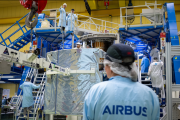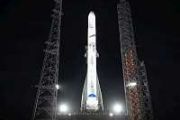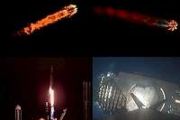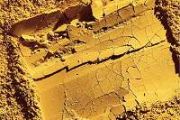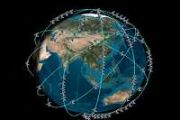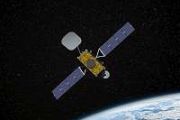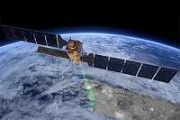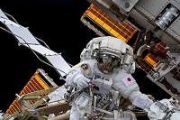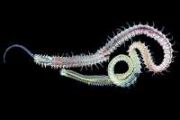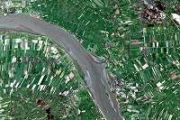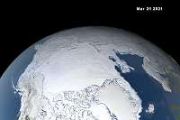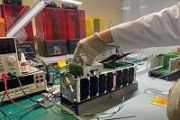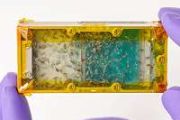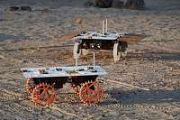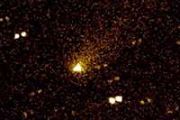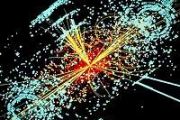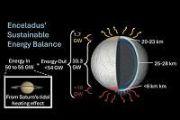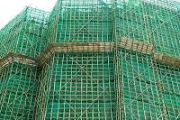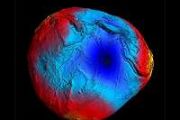
Copernical Team
Newly-Found Planets On The Edge Of Destruction
 Three newly-discovered planets have been orbiting dangerously close to stars nearing the end of their lives. Out of the thousands of extrasolar planets found so far, these three gas giant planets first detected by the NASA TESS (Transiting Exoplanet Survey Satellite) Mission, have some of the shortest-period orbits around subgiant or giant stars. One of the planets, TOI-2337b, will be consumed b
Three newly-discovered planets have been orbiting dangerously close to stars nearing the end of their lives. Out of the thousands of extrasolar planets found so far, these three gas giant planets first detected by the NASA TESS (Transiting Exoplanet Survey Satellite) Mission, have some of the shortest-period orbits around subgiant or giant stars. One of the planets, TOI-2337b, will be consumed b Astronomers find evidence for a second supermoon beyond our solar system
 Astronomers have reported a second, super-sized moon orbiting a Jupiter-sized planet beyond our solar system. If confirmed, the sighting could mean that exomoons are as common in the universe as exoplanets, and that big or small, such moons are a feature of planetary systems. But it could be a long wait. The first-ever sighting of an exomoon four years ago is still awaiting confirmation, and ver
Astronomers have reported a second, super-sized moon orbiting a Jupiter-sized planet beyond our solar system. If confirmed, the sighting could mean that exomoons are as common in the universe as exoplanets, and that big or small, such moons are a feature of planetary systems. But it could be a long wait. The first-ever sighting of an exomoon four years ago is still awaiting confirmation, and ver NASA's Spitzer illuminates exoplanets in Astronomical Society briefing
 Two new studies using data from NASA's retired Spitzer Space Telescope shed light on giant exoplanets and brown dwarfs, objects that aren't quite stars but aren't quite planets either. Both studies will be the focus of virtual news conferences hosted by the American Astronomical Society on Jan. 13.
One investigation shows that the weather on brown dwarfs - which form like stars but don't h
Two new studies using data from NASA's retired Spitzer Space Telescope shed light on giant exoplanets and brown dwarfs, objects that aren't quite stars but aren't quite planets either. Both studies will be the focus of virtual news conferences hosted by the American Astronomical Society on Jan. 13.
One investigation shows that the weather on brown dwarfs - which form like stars but don't h Martian Meteorite's organic materials origin not biological
 Organic molecules found in a meteorite that hurtled to Earth from Mars were synthesized during interactions between water and rocks that occurred on the Red Planet about 4 billion years ago, according to new analysis led by Carnegie's Andrew Steele and published by Science.
The meteorite, called Allan Hills (ALH) 84001, was discovered in the Antarctic in 1984 and is considered one of the o
Organic molecules found in a meteorite that hurtled to Earth from Mars were synthesized during interactions between water and rocks that occurred on the Red Planet about 4 billion years ago, according to new analysis led by Carnegie's Andrew Steele and published by Science.
The meteorite, called Allan Hills (ALH) 84001, was discovered in the Antarctic in 1984 and is considered one of the o MDA awarded contract for lunar landing sensors
 MDA Ltd. has announced a contract with an undisclosed US-based space company for a key landing sensor for a 2023 mission to the Moon. This award was made as part of the company's project involving NASA's Commercial Lunar Payload Services (CLPS) initiative.
"Momentum is building as governments and private sector organizations work hand in glove on a shared mission that will take us back tow
MDA Ltd. has announced a contract with an undisclosed US-based space company for a key landing sensor for a 2023 mission to the Moon. This award was made as part of the company's project involving NASA's Commercial Lunar Payload Services (CLPS) initiative.
"Momentum is building as governments and private sector organizations work hand in glove on a shared mission that will take us back tow 'Slushy' magma ocean led to formation of the Moon's crust
 Scientists have shown how the freezing of a 'slushy' ocean of magma may be responsible for the composition of the Moon's crust.
The scientists, from the University of Cambridge and the Ecole normale superieure de Lyon, have proposed a new model of crystallisation, where crystals remained suspended in liquid magma over hundreds of millions of years as the lunar 'slush' froze and solidified.
Scientists have shown how the freezing of a 'slushy' ocean of magma may be responsible for the composition of the Moon's crust.
The scientists, from the University of Cambridge and the Ecole normale superieure de Lyon, have proposed a new model of crystallisation, where crystals remained suspended in liquid magma over hundreds of millions of years as the lunar 'slush' froze and solidified. Researchers propose new explanation for Moon's half-century magnetic mystery
 Rocks returned to Earth during NASA's Apollo program from 1968 to 1972 have provided volumes of information about the Moon's history, but they've also been the source of an enduring mystery. Analysis of the rocks revealed that some seemed to have formed in the presence of a strong magnetic field - one that rivaled Earth's in strength. But it wasn't clear how a Moon-sized body could have generate
Rocks returned to Earth during NASA's Apollo program from 1968 to 1972 have provided volumes of information about the Moon's history, but they've also been the source of an enduring mystery. Analysis of the rocks revealed that some seemed to have formed in the presence of a strong magnetic field - one that rivaled Earth's in strength. But it wasn't clear how a Moon-sized body could have generate Sols 3355-2256: Closer to the Prow
 The "bump" planned on Sol 3354 to move the rover closer to "The Prow" outcrop was successful, placing the front wheels very close to the base of the outcrop. From this new position, the arm can reach the top of the outcrop, so APXS will be placed on a couple of upper outcrop targets named "Angasima" and "Kamuda" on Sol 3355. Unfortunately, MAHLI had an issue reading data from their memory a coup
The "bump" planned on Sol 3354 to move the rover closer to "The Prow" outcrop was successful, placing the front wheels very close to the base of the outcrop. From this new position, the arm can reach the top of the outcrop, so APXS will be placed on a couple of upper outcrop targets named "Angasima" and "Kamuda" on Sol 3355. Unfortunately, MAHLI had an issue reading data from their memory a coup Kleos' Patrol Mission satellites to launch in April
 Kleos Space S.A, a space-powered Radio Frequency Reconnaissance data-as-a- service (DaaS) company, announces the Kleos Patrol Mission (KSF2) satellites, planned to launch in
January 2022, have been remanifested to launch on the SpaceX Transporter-4 mission scheduled for April 2022.
Kleos is partnering with launch services provider Spaceflight Inc. to deploy its Patrol Mission (KSF2)
Kleos Space S.A, a space-powered Radio Frequency Reconnaissance data-as-a- service (DaaS) company, announces the Kleos Patrol Mission (KSF2) satellites, planned to launch in
January 2022, have been remanifested to launch on the SpaceX Transporter-4 mission scheduled for April 2022.
Kleos is partnering with launch services provider Spaceflight Inc. to deploy its Patrol Mission (KSF2) Using High Temperature Composites For Sustainable Space Travel
 On the ground, sound waves travel at around 340 metres per second. An aircraft is Supersonic when it exceeds the speed of sound. Hypersonic speed is more than five times the speed of sound - or 'Mach 5' - which is just over 6,000 kilometres per hour.
At Mach 5 and above, friction caused by molecules flowing over the hypersonic aircraft can generate temperatures in excess of 2000 Celsius. S
On the ground, sound waves travel at around 340 metres per second. An aircraft is Supersonic when it exceeds the speed of sound. Hypersonic speed is more than five times the speed of sound - or 'Mach 5' - which is just over 6,000 kilometres per hour.
At Mach 5 and above, friction caused by molecules flowing over the hypersonic aircraft can generate temperatures in excess of 2000 Celsius. S 
